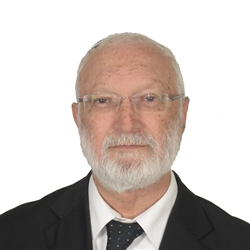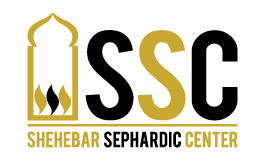
Approximately 50 years after World War II, Moroccan-born Rabbi Elyahou Shitrit came to Thessaloniki, Greece with his wife and five daughters. Rabbi Eliahu Shitrit was only three when his parents and 11 siblings moved to Israel, just after Israel’s Declaration of Independence. He attended The Shehebar Sephardic Center from 2000- 2003 when he received his smicha.
Originally, Rabbi Shitrit was sent by the Jewish Agency to Thessaloniki for six months, but his work has extended to a decade of serving a growing community. Raised in Israel, his traditions and values were quite similar to that of Greece. The Jews of Thessaloniki, Greece originated from Spain more than 500 years ago and spoke Ladinoa amongst themselves. It was during the rise of the Nazi regime that over 96% or 55,000 of these Greek Jews were killed in the Holocaust.
As rabbi of the Congregation Thessaloniki, he is a "jack of all trades.” Like helping a newborn baby grow, he does everything from teaching classes, preparing children for bar mitzvah, preparing couples for marriage, teaching Torah, leading services, as well as performing wedding ceremonies, conducting funerals and brit milt.
Rabbi Shitrit has made an enormous impact on this community of 1,000 people by taking care of all the community’s religious needs including how to keep a kosher home. Before Rabbi Shitrit came less than 100 people were eating kosher, now there are over 500 Jews keeping a kosher home.
For several years, Rabbi Shitrit has been teaching Hebrew hoping to bring more people closer to Judaism. As a measure of his success, two of his students recently went to Israel to college.
Rabbi Shitrit is motivated in knowing that his work in Thessaloniki is strengthening Judaism and the people’s connection to Israel and the Hebrew language. He hopes his work there is helping to reduce assimilation, which he considers a danger for Diaspora Jews. He sees that more and more members of his community, especially teenagers, understand the danger of assimilation and intermarriage.
Minyan used to be only on Shabbat, Monday and Thursday, now they have Minyan, including Minha and Arbit, every day. He changed the community's camp policy and now the children only eat kosher food. Every Friday night over 100 people come to Minyan then eat and sing together. His major objective, he says, is to bring the people closer to Torah and Mitzvot through love and understanding.
